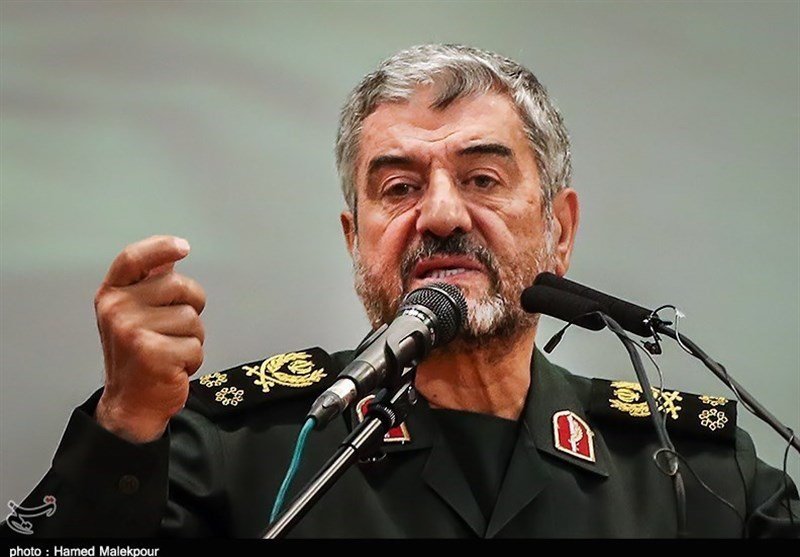IRGC chief sends strong warning to Trump

TEHRAN – The IRGC chief warned on Sunday that if Donald Trump’s administration designates the Islamic Revolution Guards Corps as a terrorist organization then the IRGC will consider the U.S. troops like Daesh.
The warning came after the White House said on Friday that President Donald Trump would announce new U.S. responses to Iran’s missile tests, support for what Washington calls Tehran’s support for “terrorism” as part of his new Iran strategy. The strategy falls within the Countering America’s Adversaries Through Sanctions Act which considers new sanctions against Iran.
“If the news is correct about the stupidity of the American government in considering the Guards a terrorist group, then the Guards will consider the American army to be like Daesh all around the world particularly in the Middle East,” Mohammad Ali Jafari said.
“If the news is correct about the stupidity of the American government in considering the Guards a terrorist group, then the Guards will consider the American army to be like Daesh all around the world particularly in the Middle East,” Mohammad Ali Jafari said.
Jafari also said if the U.S. enforces the new law for imposing new sanctions, Iran will consider the move as an abrogation of the 2015 nuclear deal and would increase its deterrence power, including its missile capability.
“As we’ve announced in the past, if the U.S. new law for sanctions is enforced, this country will have to move their regional bases outside the 2,000 kilometer range of Iran’s missiles,” the major general remarked.
“We will use any silly behavior by the Trump administration as an opportunity to advance our defensive and missile programs,” Jafari said during a meeting of the IRGC strategic council.
Jafari noted that the U.S. is following the “wrong path” if it thinks it could pressure Iran into negotiating on regional issues.
He said that there will be no chance for “interaction” if the U.S. administration enforces new law for sanctions against Iran.
The new sanctions law, if put into effect, proves that the U.S. uses negotiation as a tool to exert pressure and create animosity rather than “interaction”, he added.
NA/PA
